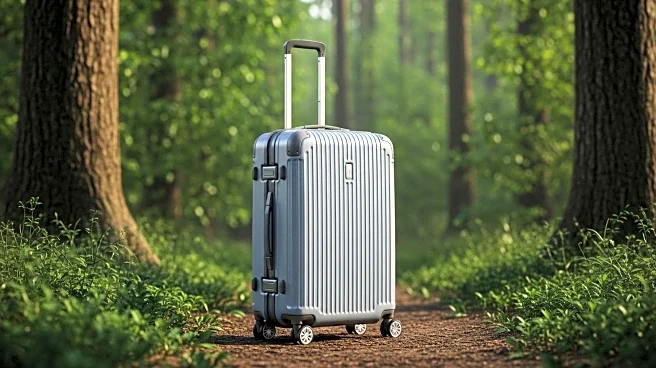What is the story about?
What's Happening?
Adrian Solgaard, an innovative entrepreneur, has successfully transformed plastic waste into a multimillion-dollar sustainable travel brand. His journey began with the invention of a new kind of lock after his bike was stolen, leading to a decade-long pursuit of eco-friendly product development. Solgaard has raised nearly $5 million through crowdfunding, creating luggage and backpacks that have prevented over three million pounds of plastic from entering the ocean. His approach to crowdfunding emphasizes storytelling and community engagement, using platforms like Kickstarter to test narratives and connect with early adopters. Solgaard's products, such as the Carry-On Closet suitcase, are designed to address real human pain points, prioritizing functionality and environmental impact.
Why It's Important?
Solgaard's success highlights the potential for sustainable business models to thrive in the modern economy. By focusing on environmental impact and community engagement, Solgaard has set a precedent for other entrepreneurs looking to integrate sustainability into their business practices. His approach to crowdfunding as a tool for testing and refining ideas rather than just fundraising offers a new perspective for startups. The company's commitment to building long-term relationships with factory partners underscores the importance of transparency and collaboration in manufacturing, which can lead to better quality control and sustainable growth.
What's Next?
Solgaard's continued focus on innovation and sustainability suggests potential expansion into new product lines and markets. As the brand grows, maintaining strong relationships with manufacturing partners will be crucial to scaling operations while preserving quality and environmental standards. The success of Solgaard's crowdfunding campaigns may inspire other entrepreneurs to adopt similar strategies, potentially leading to a broader shift towards community-driven product development in the industry.
Beyond the Headlines
Solgaard's story reflects broader cultural shifts towards sustainability and ethical business practices. His emphasis on solving real human problems through design aligns with growing consumer demand for products that offer both functionality and environmental benefits. The company's approach to factory partnerships highlights the ethical dimensions of manufacturing, encouraging other businesses to prioritize respect and collaboration over transactional relationships.
















